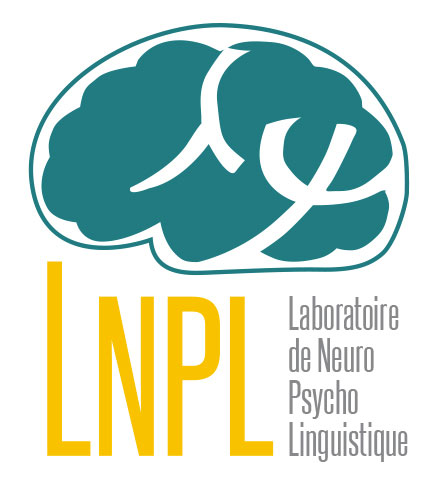-
Partager cette page
Language Acquisition and Bilingualisms
Permanent Members
C. Gunnarsson (Professor, Coordinator), Ch. Alazard (Ass. Prof. FFL), S. Anastasio (Ass. Prof. Applied Ling.), E. Arroyo (Ass. Prof. Spanish), A. Bordetas (MCF Spanisch), C. Granget (Prof., Applied Ling.), B. Köpke (Prof. Neurospsycholinguisics), V. Marijanovic (Ass. Prof., Applied Ling.), I. Saddour (Ass. Prof., FFL), O. Theophanous (Ass. Prof, Applied Ling.).
Focus
The increase in the world's multilingual population places bilingualism and multilingualism at the heart of the neuropsycholinguistic approach, presenting new challenges for research. We address these issues both through the study of the confirmed bi- or multilingual and also by investigating emerging bilingualism in the learner of a second (L2) or a foreign language. Using a functionalist, usage-based (neuro)psycholinguistic approach, our aim is to contribute to a better understanding of language acquisition/learning processes, as well as the processing and management of languages in contact. Our methods are based as much on corpus analysis as on experimental or neurocognitive methods.
Our research is organized around three research topics:
- Language acquisition in a guided environment: part of our research focuses on the acquisitional process. We aim to contribute to a get insights into the learner's morphosyntactic, lexical, phonetic-phonological and discourse development. We approach this mainly through the study of oral and written production and its correlates (fluency, accuracy, complexity) at different acquisitional stages, taking into account the multimodal dimension and possible didactic implications.
- Managing several languages in contact: this research topic focuses on the intervention of cognitive processes and non-linguistic mechanisms in the processing of several languages in competition, notably on the activation, inhibition and cognitive flexibility. Research within this area also encompasses language control activities in L2, compensatory strategies, and loss of control in the context of attrition.
- L2 second-language user profiles: another area of our work focuses on the individual profiles of second- and/or foreign-language learners, as well as bilingual speakers. The aim is to study differentiated skills in language appropriation, inter- and intra-individual variability in acquisitional rhythms and stages, and variations in language use.
Some recent papers :
- Judkins, L., Alazard-Guiu, C. & Astésano, C. (2022). How do we chunk and pause in non-native vs native speech? Methodological implications for SLA. Proc. Speech Prosody 2022, 792-796, doi: 10.21437/SpeechProsody.2022-161
- Granget, C. & Delais-Roussarie, E. (2022). Does Japanese/German L1 Metrical and Tonal Structure Constrain the Acquisition of French L2 Morphology?, Languages 7 (4), doi: 10.3390/languages7040305
- Saddour, I. & C. Gunnarsson, C. (eds). (2021). Réflexions sur les usages et les utilisateurs du français : aspects acquisitionnels et /ou didactiques. Bern : Peter Lang.
- Léger-Zheng, E. & Théophanous, E. (2021). Inférence et apprentissage du vocabulaire : effet de la lexicalisation en première langue et de la tâche. Lexis. Journal in English Lexicology, 18. ⟨10.4000/lexis.5937⟩.
- Köpke, B., Howells, R. K. R., Cortelazzo, F., Péran, P., de Boissezon, X. & Lubrano, V. (2021). Functional and structural differences in brain networks involved in language processing and control in highly proficient early and late bilinguals. Journal of Neurolinguistics, 59, doi.org/10.1016/j.neuroling.2021.100988

